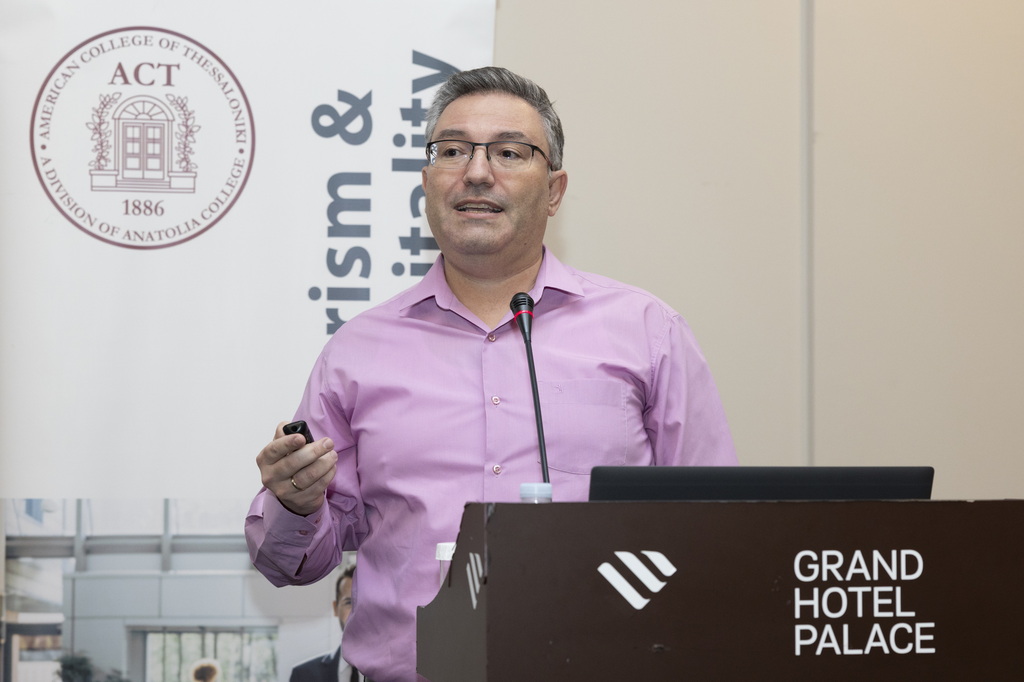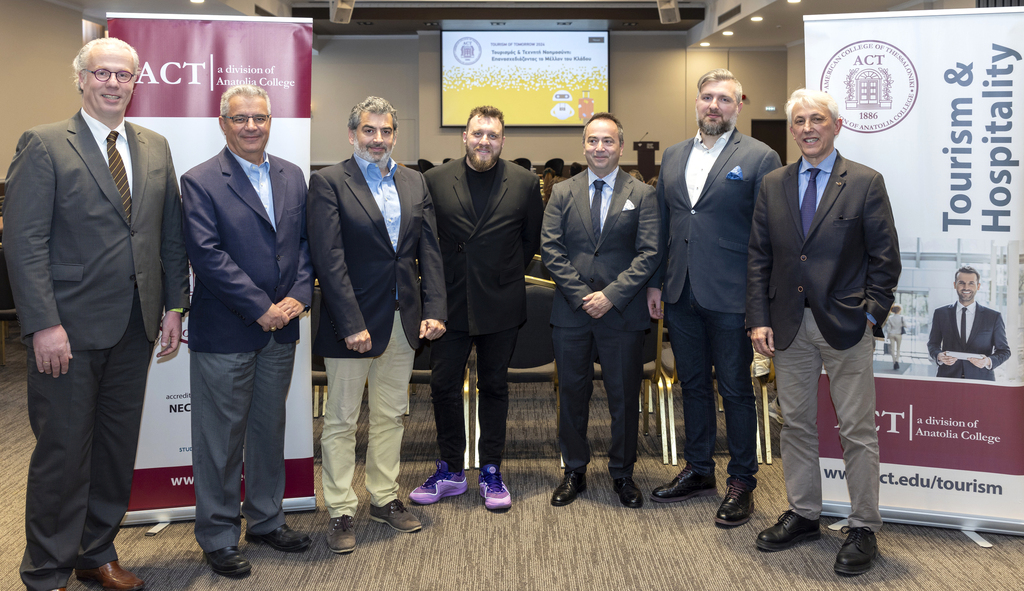Tourism and Artificial Intelligence at the forefront of the 7th "Tourism of Tomorrow 2024" Conference by ACT
Artificial Intelligence and the changes it brings to the field of tourism was the topic of the 7th conference of the Academic Program of Tourism and Hospitality of ACT (The American College of Thessaloniki), held on Friday, April 5, 2024, at the Grand Hotel Palace, Thessaloniki. The conference "Tourism & Artificial Intelligence: Redesigning the future of the industry"approached the topic in a global and multi-faceted manner, focusing on the services already provided (creation of personalized tourism products, trend forecasting, and analysis, communication, advertising, travel experience using chatbots, virtual assistants and augmented reality), in predicting and analyzing trends, and in the legal and ethical conditions that must be taken into account for the design and development of the technology.
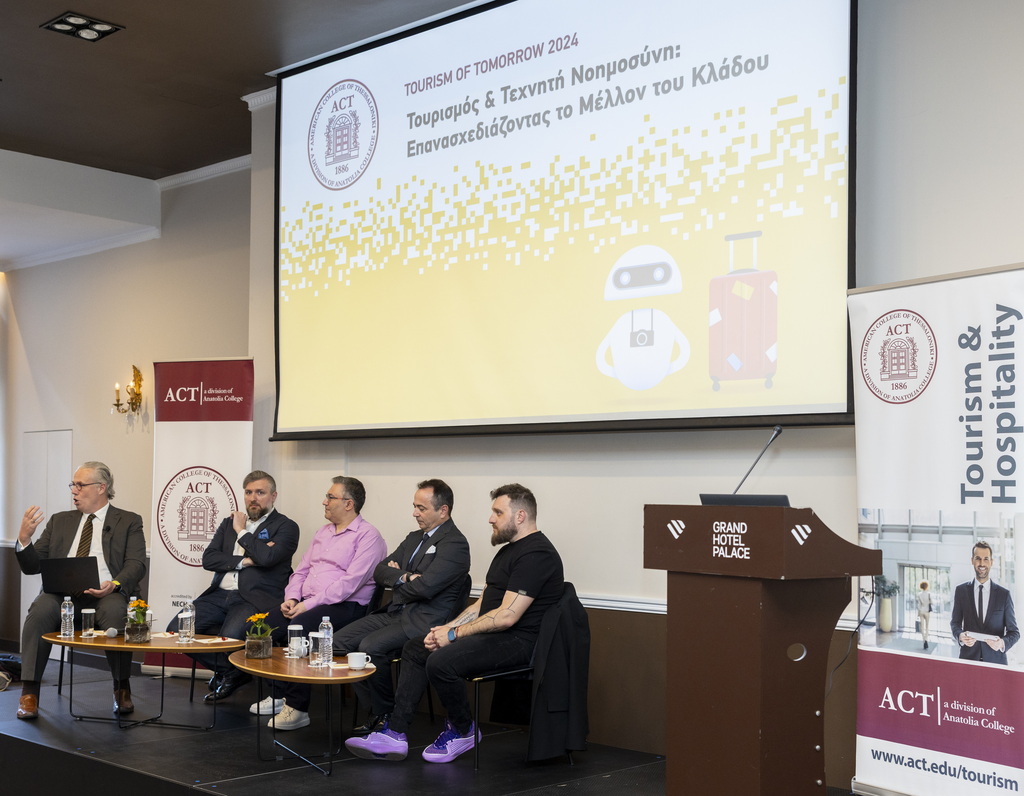
Dr. Nikolaos Hourvouliadis, Chair of the Business School of ACT, welcomed the multitudinous audience. 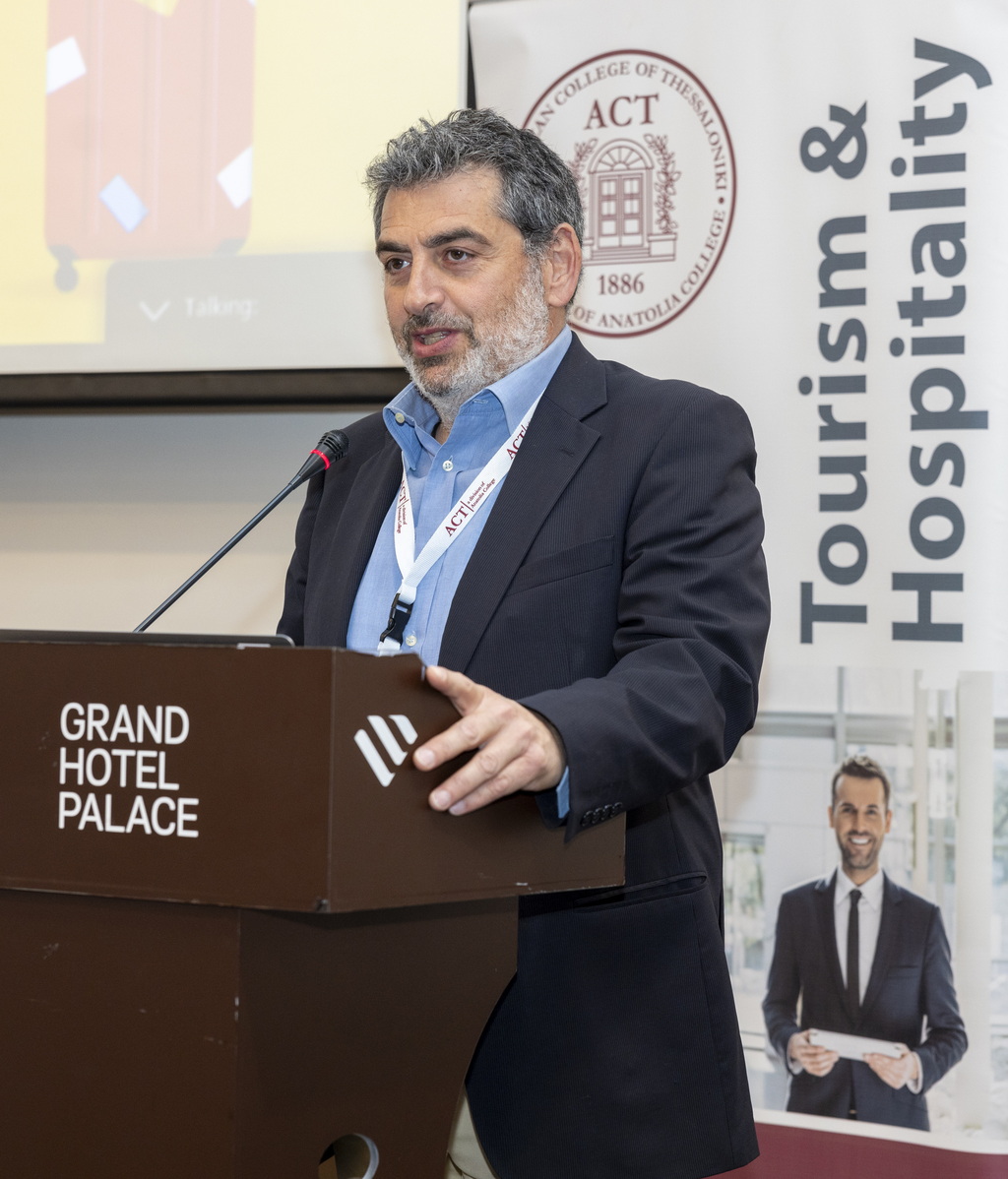
The conference started with the greeting of the President of Anatolia College, Dr. Panos Vlachos, who emphasized the competitive advantage that the use of Artificial Intelligence tools can offer to Greek tourism, such as electronic invoicing, which can increase hotel revenues by 30% according to a study by McKinsey. "We have to demonstrate adaptability rather than fearful syndrome, as the logic of familiarizing ourselves with technology is common in human history," emphasized Dr. Panos Vlachos while also noting the need to address ethical issues that corresponding policies for citizen protection must tackle.
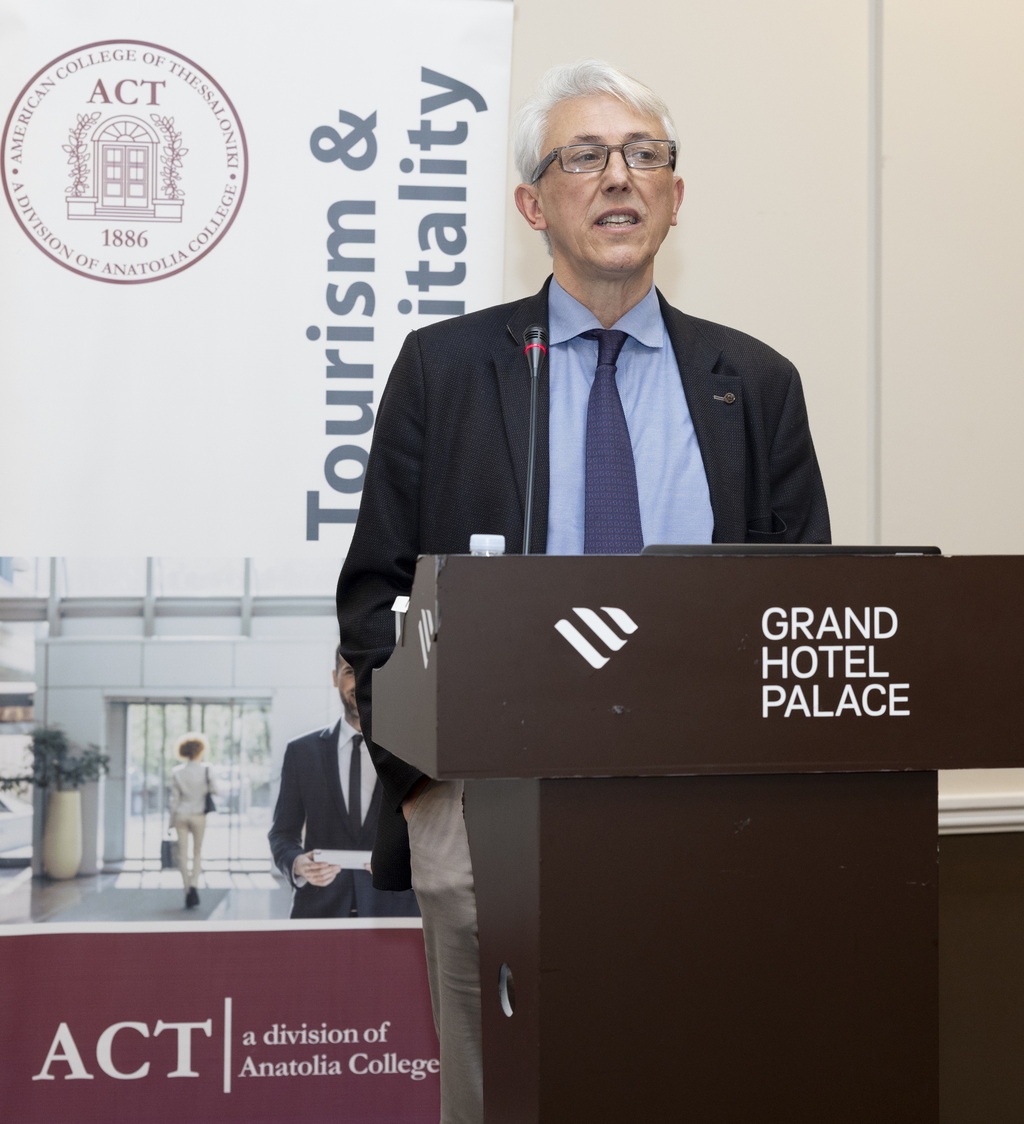
Anestis Anastasiou, Head of Tourism and Hospitality Academic Programs at ACT, moderated the event. He asked the speakers questions formulated from proposals generated by the ChatGPT dialogue assistant, which was specifically used for this purpose.
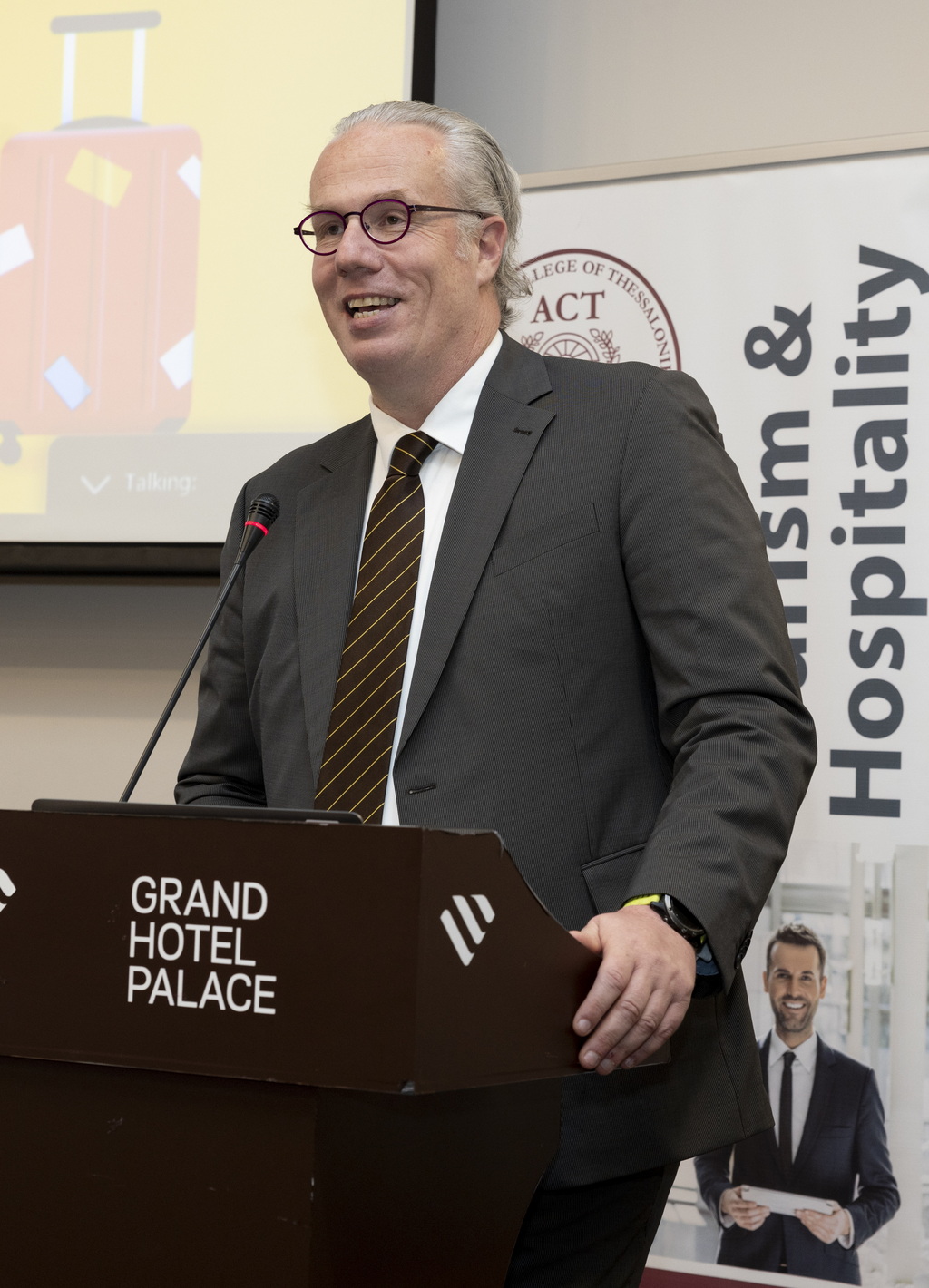
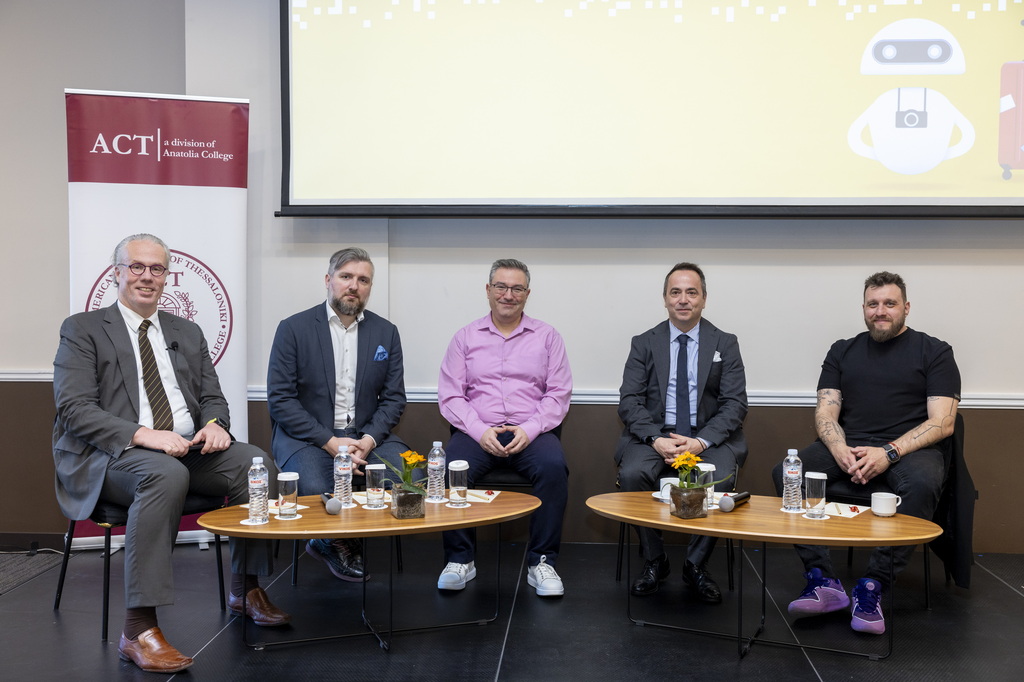
Artificial Intelligence and Augmented Reality are already megatrends of the era and are expected to change or enhance the travel experience with tools such as virtual tours. Their contribution to the industry's sustainability is also possible, as 74% of travelers state they wish to travel to sustainable destinations. This was highlighted by Dimitris Dimitriadis, Chief Innovation Officer of "The Future Cats," who mentioned that more than 5,000 applications have already been developed, preparing for the transition from Artificial Intelligence (AI) to Intelligence Augmentation (IA). "However, our jobs are not at risk from Artificial Intelligence, but from the people who know how to handle it better than us," Mr. Dimitriadis said.
Artificial Intelligence is estimated to contribute $5 trillion to global GDP in the next decade, stated Dimitrios Georgiou, Senior Consultant at Deloitte. One in ten travelers – a figure higher among younger demographics – has already utilized Generative AI tools in their travel destination, with eight out of ten expressing high satisfaction with the outcome. According to research, over half of travelers would prefer destinations with tools such as 24/7 digital assistants, price comparison tools, audio guides, personalized services and information, marketing content creation platforms, product design, and reward programs. "One of the most significant improvements that Artificial Intelligence can bring is the implementation of sustainable practices in the tourism sector and the reduction of companies' energy footprint," emphasized Mr. Georgiou during his online connection.
"Artificial Intelligence can help us make more effective and strategic decisions for developing our tourism product based on real data rather than assumptions," noted Roman Sarbash, Head of Innovation & Technology at Domes Resorts. This data is leveraged to create better offers tailored to travelers' preferences and more targeted communication campaigns. The use of artificial intelligence at the Domes group has resulted in reduced waiting times, personalized responses and accommodation proposals for its customers, more comfortable hospitality experiences, increased room capacity, and the development of new services. "Humans will continue to be part of the equation, especially in tourism, and for this reason, 'we definitely don't want to press the button and let it work on its own,'" Mr. Sarbash concluded.
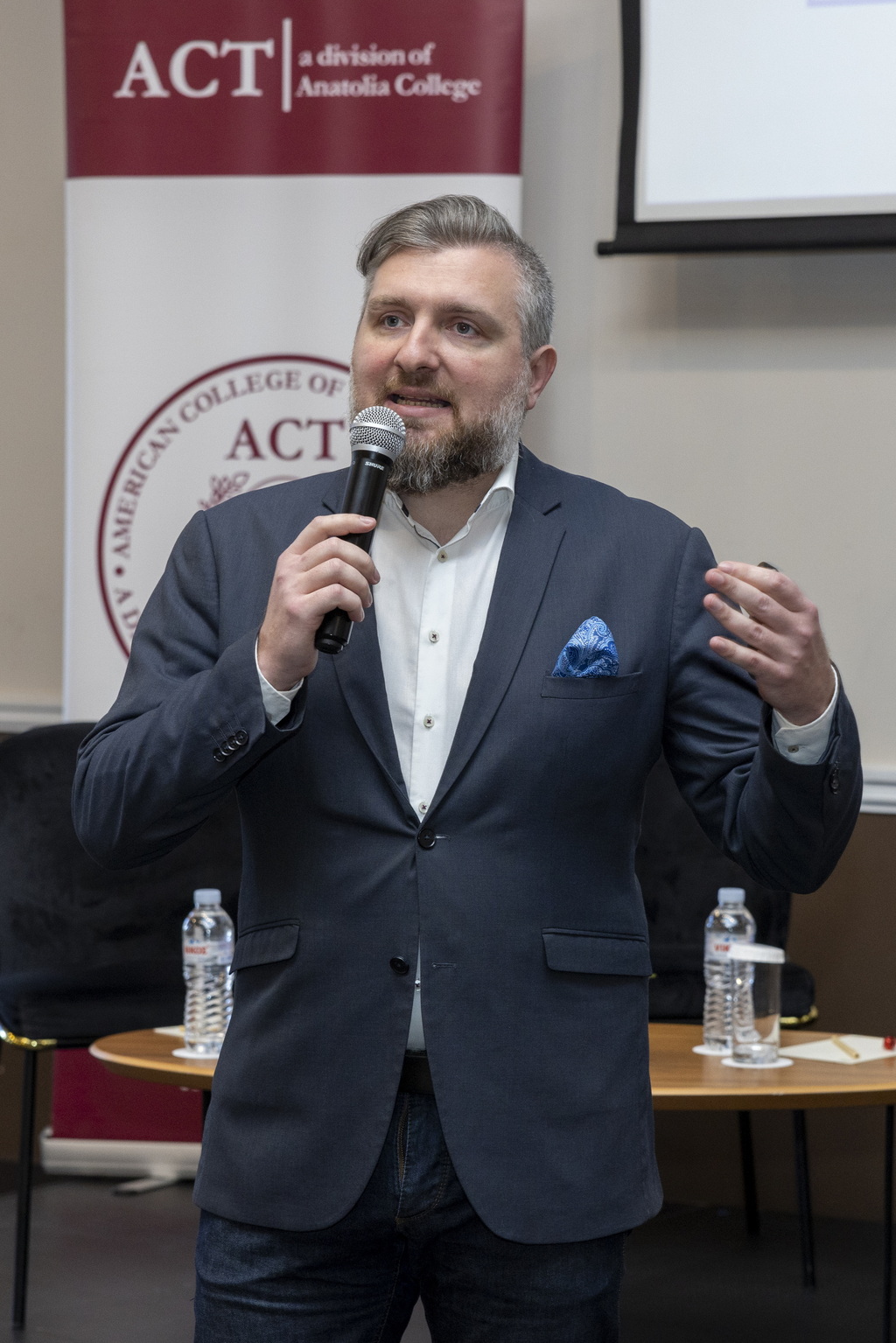
During his online connection, Markos Giannisopoulos, Area Manager, EMEA Lodging Team at Expedia Group, mentioned the vast volume of data, 70 Petabytes, collected from the group's services. By integrating applications such as ChatGPT into the company's app, along with other purchasing capabilities like hotel comparison and flight price monitoring, travelers can plan their trips with support from a virtual assistant available at any time of day. More than 50% of travelers haven't chosen a destination and can receive answers to questions like "What would be the ideal destination for me?". Over 3 million visitors already utilize the Price Tracking service with notifications for price changes, while 100 million daily searches leverage data spanning over eight years of history. At the same time, users can benefit from unified reward and redemption programs across all group brands and travel products.
The potential of hyper-personalization and conversational AI in targeted marketing actions was addressed by Theodoros Papanestoros, Executive Director of Institutional Marketing & PK-12 Enrollment at Anatolia College. He emphasized the importance of recommendation systems, predictive analytics, and geographic targeting, which, combined with Artificial Intelligence applications, "allow us to create personalized advertisements based on the preferences expressed by potential travelers through internet usage and social media while also matching each user with a personalized landing page." Another important aspect is ensuring that advertising targeting doesn't limit or trap travelers into choices that recycle their preferences but also considers elements of surprise, discovery, and new and different experiences, which are fundamental reasons why we travel, as Mr. Papanestoros emphasized.
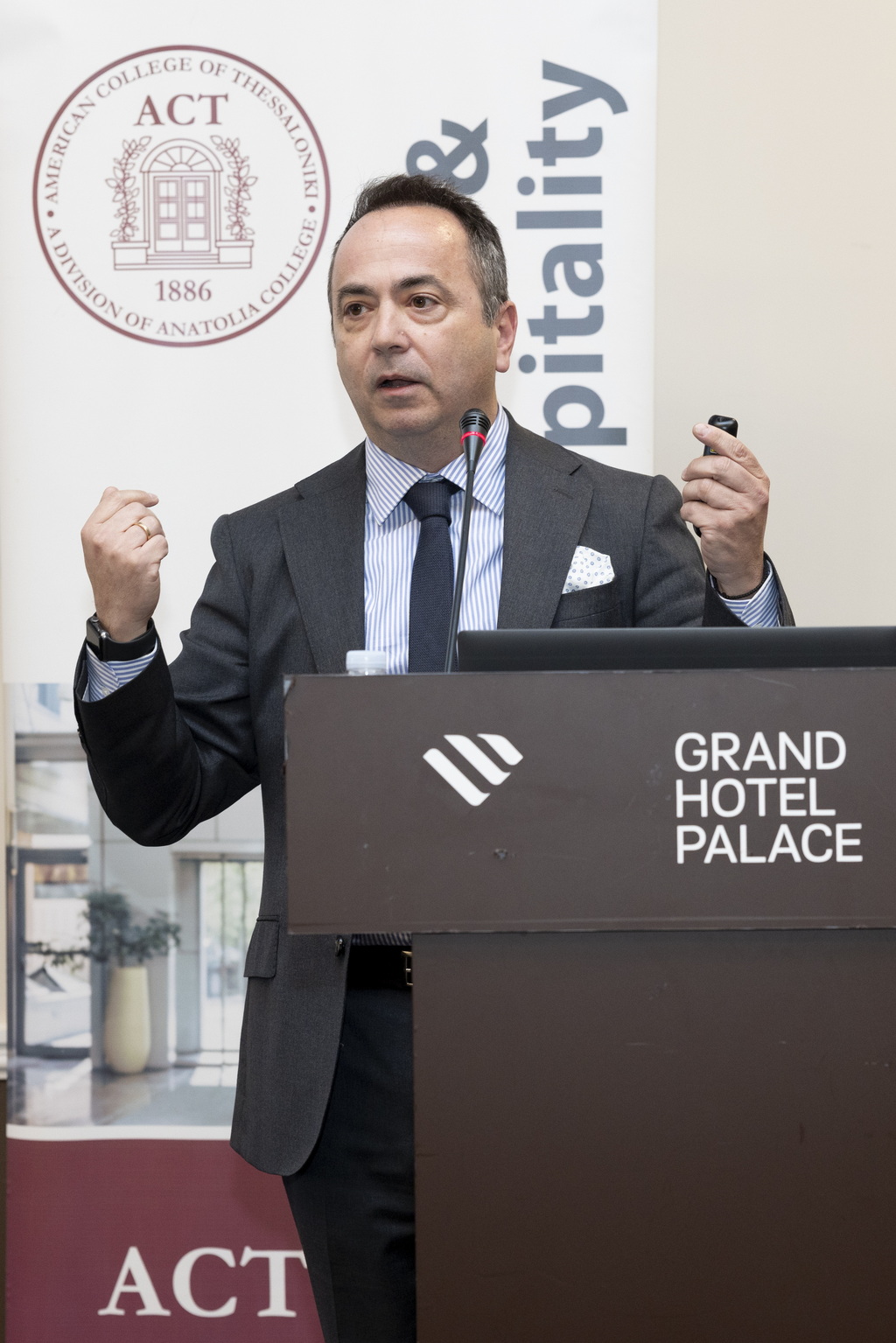
The qualitative characteristic of serendipity, meaning the discovery that produces joy and/or benefit without actively seeking it, should be included in their design by recommender systems, which are more important for the Tourism sector at this moment compared to Artificial Intelligence applications in dialogue (chatbots), as noted by Pantelis I. Kaplanoglou, Adjunct Professor in Computer Science at ACT (American College of Thessaloniki) and Chief AI Officer at Arx.Net. He pointed out that Artificial Intelligence cannot yield results without data and that companies in the sector will benefit from "unlocking" the vast untapped volume of data they possess to generate valuable knowledge. Regarding collaboration between companies and the research community, he mentioned that "There are ways to do this in a lawful manner and compatible with the new Regulation on Artificial Intelligence (AI Act) and the EU General Data Protection Regulation (GDPR). We must not forget that technology must be lawful, ethical, and robust. However, at this moment, not enough data has been provided for Artificial Intelligence to progress as quickly as we think," emphasized Mr. Kaplanoglou, who clarified that "we do not essentially have Artificial Intelligence, which describes the ability to solve every unknown problem. The systems we have developed should be characterized by the term 'Artificial Intelligence', which can perform certain intelligent functions such as dialogue."
